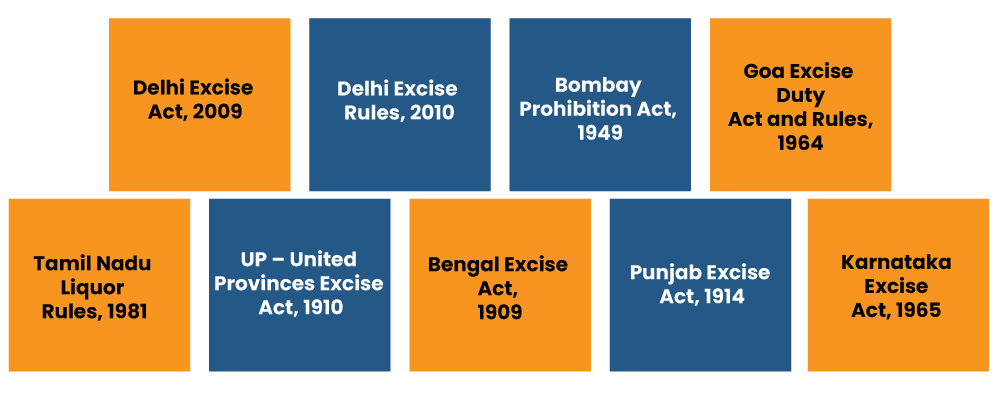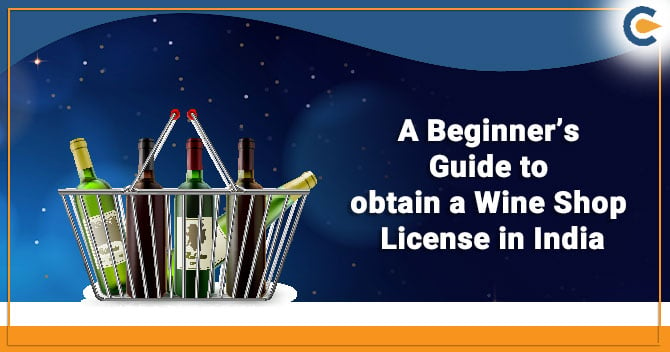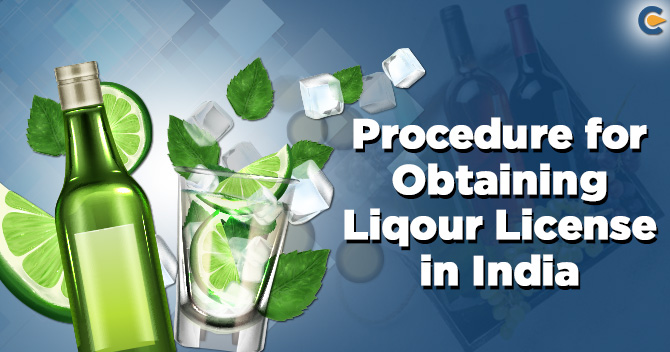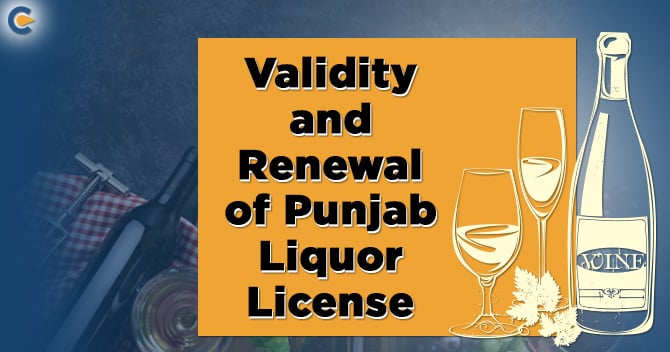If you intend to sell alcohol-based beverages such as wine, whisky, rum, or beer in India then you would require a liquor license for that. Liquor is usually available in clubs, bars, restaurants, hotels, discos, and pubs. Henceforth, a liquor license is a must-have requirement to open such establishments in India. Legally, it’s an offense to sell alcohol-based beverages without this license. Also, the liquor sale law mandates the obtainment of a Wine shop License in India. This blog will let you know how to get a Wine shop License in India in a legal way.
What parameters does Wine Shop License regulate in general?
A wine shop license administers the key parameters, such as
- Which entities are eligible for the selling of alcohol-based beverages?
- Time constraint and avenues for selling alcohol
- Quantity of alcohol-based beverages being sold
- Charges imposed on the alcohol-based beverages being sold
- Category of alcohol being sold
- Who can buy alcohol from the registered shop?
- Candidate eligible for producing & distributing alcohol
Read our article:How to apply for Liquor License for your Restaurant
Type of liquor licenses available in India
- Beer and Wine Shop License: Sale of beverages containing a moderate quantity of liquor, such as wine and beer
- Restaurant Liquor License or All-Liquor License: Accessible to those restaurants whose income from the sale of alcohol is less than or equivalent to 40%.
- Tavern Liquor License: Accessible to those establishments whose 50% of profit comes via liquor selling.
- Brewpub Liquor License: Available to those who are engaged in the brewing of beer and wine.
- L1: Refer to a Wholesale license for the supply of liquors to other license holders.
- L3/L5: Act as legal permission to serve non-Indian liquor to consumers in their rooms/ in bar
- L5: Refers to legal permission to serve non-Indian liquor to consumers in bars.
- L6: Meant for retail vendors dealing with trading of Indian-made liquors & beers.
- L19: L19 is mandatory for clubs serving overseas liquor to end-users.
- L49: Meant for individual who intends to serve alcoholic beverages at the party.
- L-9: Legalizes the retail selling of overseas liquor.
- L-10: Meant for those who wish to sell Indian & foreign liquor.
- P-13: Available to hotels for serving non-India liquor for a specific function
- P-10: Meant for serving the liquor at the specific event within the city.
Mandatory Documentation for wine shop license in India
The documentation for a Wine shop License in India differs state-wise. The list below reflects the generalized documents one has to arrange to get this license from the relevant authority.
- Applicant’s Identity as well as address proof
- Address proof regarding the place of business.
- Municipal corporation’s as well as Fire Department’s NOC
- Application incorporated with personal as well as business details
- MOA and AOA for private limited companies.
- Recent copy of Income Tax return.
- Applicant’s digital photos in a permissible size.
- Affidavit reflecting non- criminal track record of the concerned applicant.
- An affidavit declaring that the applicant does not have pending dues.
Procedure to avail wine shop license in India
Since each state leverages an autonomous legal structure for selling and consumption of liquor, it may cause some confusion in the mind of first-timer. Therefore is advisable to connect with a lawyer or expert’s firm like Corpbiz to overcome such complications. Once you decided what class of license you will avail of, visit the online portal of the State Excise Department and take the following steps.
- Download the e-form regarding the Wine Shop License.
- Duly fill the downloaded form with the requested details such as type of license, type of liquor, place of business, and background details.
- Next, furnish the said form attached with the supporting documents before the concerned authorities.
- Next, pay the mandatory application fee while furnishing the application.
- The state authority will examine the submitted particulars and may intimate the applicant for further clarification.
- Post-verification, the authority will send the notification to the applicant, enclosing the detail of the license. The said notice will be shared publically to invite any objections from localities. Note: Applicant will be vested with the right to retaliate any objection through the prescribed course of action.
- If everything goes smooth and no objection arises, the authority will bestow the wine shop to the applicant.
Pricing related to Wine shop license in India
The price for obtaining the wine shop license in India revolves around three important factors, such as;
- Type of license
- Nature of the business entity
- Nature of event, if applicable
The following section explains the average cost of various licenses in India.
Temporary Liquor License
This license is for throwing small ceremonies or parties in an area with a max populace of 20 lakhs.
- For less than 100 members – Rs 7,000.
- For more than 100 members – Rs 10,000
FL-4 License
Cost around Rs 13,000 and it is mandatory for those who intend to host a party with alcoholic beverages in a private flat or resort.
Permit Room License
- To serve in permit rooms –Rs 5,44,000
- For restaurants as well as wine/beer shops Rs 1,50,000
State Liquor License
- Anywhere between RS 5000 to Rs 15000 based on the state
- Yearly license fee in Tier-1 cities Rs 10 lakhs
- Yearly license fee in Tier-2 cities Rs 7.5 lakhs
- Yearly license fee in Tier-3 cities Rs 5 lakhs
- Yearly license fee in Tier-4 cities Rs 2.5 lakhs
Fundamental laws that regulate the sale of liquor in India
Some of the most fundamental laws that regulate the sale of liquor in India are as follows;


Important Points to Ponder for Wine Shop License in India
- Every state has autonomous liquor laws for the production, sale, and consumption of liquor
- 21 is the minimum age limit for buying moderate liquor in Delhi as per the Delhi Excise Department. For hard liquor, the minimum age limit is 25.
- In Maharashtra, the sale and production of alcohol are not legally permissible in the places like Chandrapur[1], Wardha & Gadchiroli.
- A liquor license comes with a validity period of one year from the issuance’s date. Its renewal must be done 30 days before the expiration.
- Conditions for revocation of this license include; selling of liquors on dry days, serving alcohol to minors, and breaching norms underpinned by the State Excise Department.
Conclusion
It is now crystal clear that a wine shop license in India revolves around plenty of legal implications. Those who are allegedly found guilty of breaching the State Excise Department’s norms will encounter rigorous penalties. Therefore, if you want to starts a liquor-based business, be ready for complying with endless compliances. CorpBiz’s experts are always behind you intending to render class-leading services regarding government compliances and registration.
Read our article:How to get Labour and Shop & Establishment Certificate For Distributors and Marketers?













